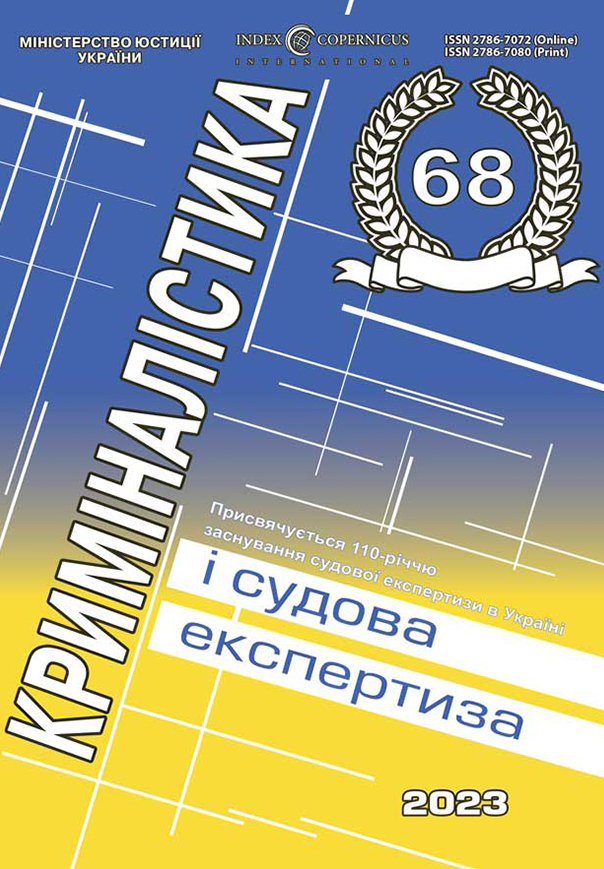
DOI: https://doi.org/10.33994/kndise.2023.68.30
Yu. Brailko, N. Kysla
Today, a significant number of resolutions on the appointment of a forensic examination are received in criminal proceedings on the grounds of the commission of criminal offenses provided for in Art. 436-2 of the Criminal Code of Ukraine, including the glorification of persons who carried out the armed aggression of the russian federation against Ukraine, representatives of the armed forces of the russian federation, irregular and illegal armed forces, armed gangs and groups of mercenaries, representatives of the occupation administration of the russian federation and self-proclaimed bodies under the control of the russian federation, who usurped the performance of power functions in the temporarily occupied territories of Ukraine. Since the above-mentioned article was added to the Criminal Code of Ukraine on 03.03.2022, this problem is new for forensic examination; and actions related to glorification have been criminalized for the first time in the domestic legal system.
The purpose of the research is to highlight the current problems of the linguistic research of the phenomenon of glorification within the framework of the pre-trial investigation of criminal offenses provided for by Art. 436-2 of the Criminal Code of Ukraine.
Forensic linguistic expertise only develops approaches to the study of glorification, the definition of linguistic features of this phenomenon.
The article analyzes the judicial practice from April to September 2022, the verdicts under Art. 436-2 of the Criminal Code of Ukraine contained in the Unified state register of court decisions, to investigate the initial stage of the peculiarities of specific linguistic knowledge usage in the framework of criminal proceedings related to glorification.
The leading parameter for determining the presence of glorification is the heroization of actions carried out in the following linguistic ways:
– explication of lexemes with appropriate semantics; – a generalized description of exploits;
– a detailed description of the feat/feats;
– actualization of the meaning of «defender» / «defenders»;
– representation of the «winner» content plan;
– actualization of the meaning «fighter/fighters against Nazism / neo-Nazism /
fascism».
The second parameter for identifying the linguistic fact of glorification is the expression of an approving attitude, not accompanied by the semantics of heroism:
– description of leadership qualities;
– actualization of moral qualities;
– verbalization of respectful attitude and/or gratitude;
– sacralization;
– use of constructions of the desired modality;
– explication of lexemes with distinct positive and evaluative connotations.
Problems solved ambiguously by experts and specialists:
– identification of linguistic phenomena of support and glorification;
– linguistic identification of glorified objects.
Forensic linguistic examination faces the essential task of summarizing and systematizing scientific knowledge and practical experience to create a unified methodology for the study of glorification as a verbal fact.
Key words: glorification, forensic linguistic (semantic-textual) examination, linguistic fact, expert’s opinion, specialist’s opinion, verdict.










